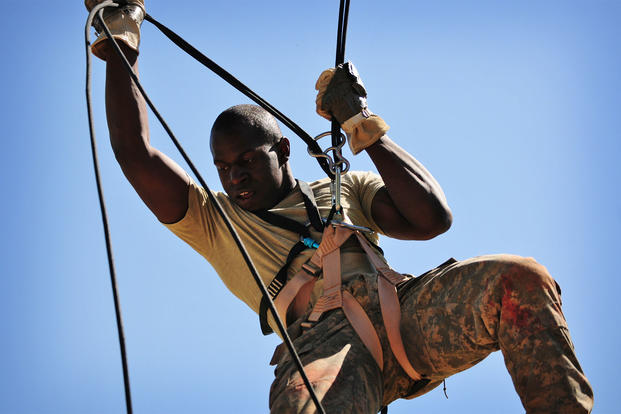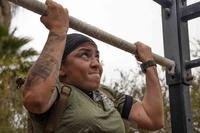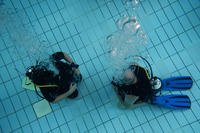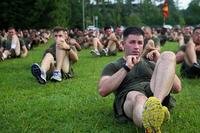Over the past 20 years of writing about tactical fitness and the previous 10 years in the tactical professions, there have been great strides taken by military, police and firefighter programs with regard to fitness preparation, testing, training, maintenance and longevity.
Job-specific training programs are being developed by thoroughly understanding the three phases of tactical fitness: recruit, student and operator. We also call the three phases -- to the training, through the training and after the training. In the past, there was not such a distinction.
However, many people think that to be a tactical athlete or do well enough on fitness tests and boot camps to become a member of any tactical profession, you must be an athlete. It is helpful, but to be in good physical condition does not require any extra athletic gifts or talents.
The following is a list of necessities in the tactical profession that require no talent:
1. Don’t ask what the minimum standards are. If you are seeking to enter the world of the military, police and firefighting, where your life could be dependent upon your fitness level and knowledge of the job, do you want to rely on the bare minimum? No.
It only takes more work, preparation and practice to get better at fitness tests (run, PT, swim) and tactical fitness tests (lifting, load-bearing grip, core, speed, agility). This is your life or another’s life in your hands; take your fitness and health that seriously. You can be this fit, regardless of athletic abilities.
2. You do not rise to the occasion; you fall to the lowest level of training. Take your training seriously. When under duress or faced with a life-or-death situation, your training will get you through. After such situations, many will say, “I did not think; I just reacted.” Having that kind of reaction that allows you to talk about it later requires you to take your training and preparation seriously -- both fitness and tactical skill work. Your attitude to learn and apply is the key to this necessity.
3. Work ethic. There are no tips, secrets or secret sauce. Showing up to work on time, ready to work and with the right gear and mindset does not require any special God-given talents. Work hard and train harder to win. Be better than who you were yesterday. The amount of effort you put into your preparation, maintenance and longevity will enable you to have the type of energy and ability to handle the physical and mental stresses of the job. We all can show up ready to work.
4. Take the initiative. For any member in the tactical professions, understanding the moment when something needs to be done and getting it done without someone having to tell you to do it is key to your growth as a human and will make you a better teammate with your unit. If you are preparing for military service, start early. Learn how to answer questions yourself by doing a reasonable amount of research. Google is a powerful tool for this. Don’t ask questions that are researched easily on Google. Book recommendation: Read "A Message to Garcia," which describes the personification of taking the initiative.
5. Always learn. You can learn something new every day of your life. Be the student. Whether it is learning from others, learning what not to do from other’s mistakes or reading about topics that confuse you, be open to gaining knowledge. It will make you smarter. This ability is not a special talent but more of an attitude that you can foster each day.
6. Motivation. Being motivated has nothing to do with talent. Your heart and determination to be or do something in life and within the tactical professions will go a long way. However, this motivation has to be nurtured daily with persistence and building habits, which make you a disciplined person who can get things done even when you are not particularly “motivated” on a bad day. It is no one’s job to motivate you to serve your country or prepare physically to serve your country. It is yours.
7. Train your body to save another. Having the ability to get yourself and-or others out of dangerous situations requires you to engage in all the elements of tactical fitness fully. Those include strength, power, endurance, muscle stamina, grip, speed/agility, mobility and flexibility. You have to be good at all of those elements, not just great at a few of them like a typical athlete. Being a well-rounded tactical athlete takes time, hard work and determination. You may not be an athlete, but you have to train like one to accomplish this necessity.
We all have our weaknesses and must go on a preparation journey to overcome all deficiencies before joining the military, police or firefighting communities. Get out there and prepare properly. If you really want it, you can do it.
Stew Smith is a former Navy SEAL and fitness author certified as a Strength and Conditioning Specialist (CSCS) with the National Strength and Conditioning Association. Visit his Fitness eBook store if you’re looking to start a workout program to create a healthy lifestyle. Send your fitness questions to stew@stewsmith.com.
Want to Learn More About Military Life?
Whether you're thinking of joining the military, looking for fitness and basic training tips, or keeping up with military life and benefits, Military.com has you covered. Subscribe to Military.com to have military news, updates and resources delivered directly to your inbox.



















